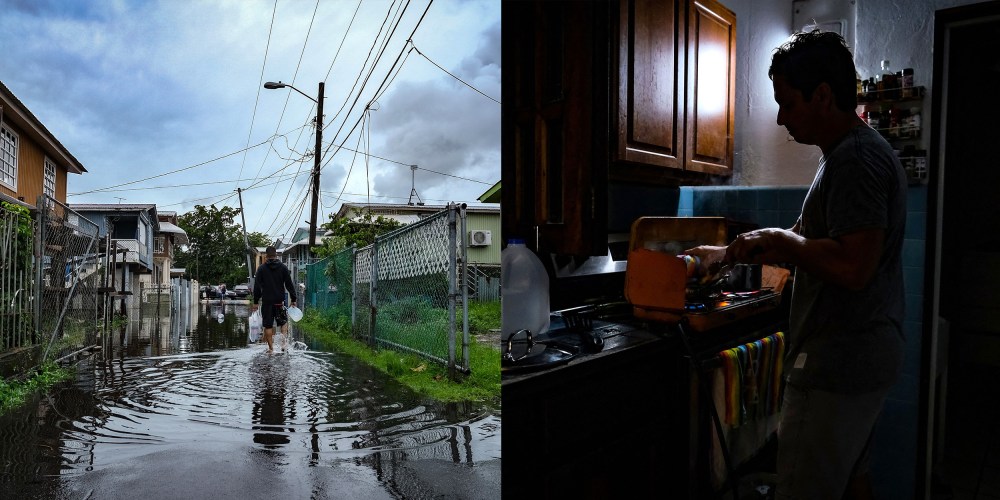After Hurricane Maria battered Puerto Rico five years ago, then-President Donald Trump complained that getting much-needed aid to an island of more than 3 million American citizens was too hard for the world’s most powerful country to achieve. He blamed geography — as if Puerto Rico were in another universe. “This is an island,” Trump said of the American colony. “Surrounded by water. Big water. Ocean water.”
After Hurricane Maria battered Puerto Rico five years ago, Donald Trump complained that getting aid to an island of more than 3 million American citizens was too hard.
On Thursday, as President Joe Biden addressed both the destruction Hurricane Ian visited on Florida on Wednesday and the challenges Puerto Ricans are still facing after Hurricane Fiona hit Sept. 18, he presented a different message.
“While we’re seeing the devastating images in Florida, I want to be clear: To the people of Puerto Rico, we’re not gone away,” Biden said at Federal Emergency Management Agency headquarters. “I am committed to you and the recovery of the island. We’ll stand by you for however long it takes to get it done.”
Even so, the Puerto Rican government still needs a federal waiver so foreign-flagged ships can deliver much-needed diesel to run generators and cell towers. The antiquated Jones Act allows only U.S. ships to bring goods and supplies to Puerto Rico. For decades, Puerto Ricans have railed against how much the act has stunted economic growth and just recoveries, and the latest example of it being cited to explain a delay of aid provides another reason why the Jones Act should be overturned immediately.
Such a scenario would never occur in Florida (or in the Carolinas, where Ian was headed Friday) marking a stark difference between states of the union and the United States’ colonies.
A comparison of the White House’s Fiona response and its plan to respond to Ian in Florida reveals the simple truth: States in the U.S. get more aid and resources than Puerto Rico, leading to unequal and unjust recovery.
A 900-page report from the U.S. Commission on Civil Rights released Sept. 21 chastised FEMA for what the commission determined were mistakes during Maria. In short, FEMA failed to adequately respond to the crisis with cultural competency or understanding of the community it was trying to help.

“With regard to Hurricane Maria, the people of Puerto Rico, we believe, were treated in a manner inconsistent with the mandate toward equality, fairness and impartiality,” Commissioner Michael Yaki told NBC News.
Biden’s decision to mention Fiona on Thursday merits praise, but given that little has changed since Maria in 2017 and given that the nation’s focus has shifted to Ian, the question remains: Will Puerto Rico be forgotten again?
The answer is not so clear.













